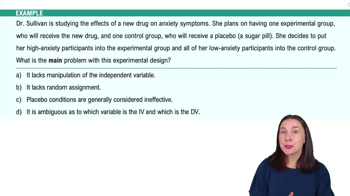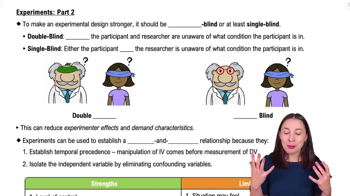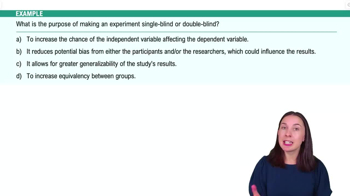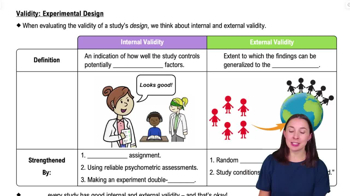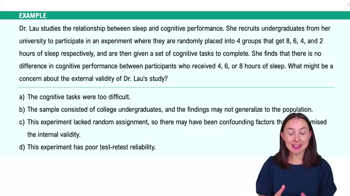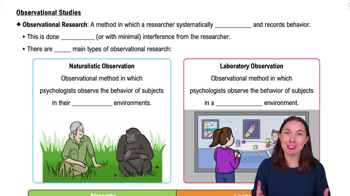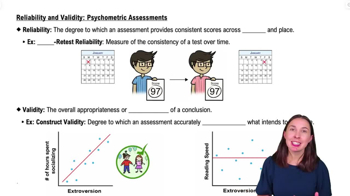Table of contents
- 1. Introduction to Psychology1h 43m
- 2. Psychology Research2h 20m
- 3. Biological Psychology2h 41m
- 4. Sensation and Perception28m
- 5. Consciousness and Sleep32m
- 6. Learning41m
- 7. Memory34m
- 8. Cognition37m
- 9. Emotion and Motivation35m
- 10. Developmental Psychology33m
- 11. Personality48m
- 12. Social Psychology41m
- 13. Stress and Health41m
- 14. Psychological Disorders44m
- 15. Treatment47m
2. Psychology Research
Intro to Research Methods
Struggling with Psychology?
Join thousands of students who trust us to help them ace their exams!Watch the first videoMultiple Choice
Manolo believes that if his luck is good on the day of his final exam, he will do well. Manolo likely has
A
an external locus of control.
B
an internal locus of control.
C
a high expectancy of success.
D
obsessive-compulsive disorder.
 Verified step by step guidance
Verified step by step guidance1
Understand the concept of 'locus of control': It refers to the degree to which individuals believe they have control over the outcome of events in their lives, as opposed to external forces beyond their control.
Differentiate between 'internal' and 'external' locus of control: An internal locus of control means believing that one's own actions determine outcomes, while an external locus of control means believing that external factors, such as luck or fate, are responsible.
Analyze Manolo's belief: He attributes his potential success on the exam to 'good luck,' which is an external factor.
Relate Manolo's belief to the concept of locus of control: Since he believes that an external factor (luck) will determine his success, this aligns with an external locus of control.
Conclude that Manolo's belief is indicative of an external locus of control, as he does not attribute his success to his own efforts or abilities.

 1:46m
1:46mWatch next
Master Roadmap of the Lesson with a bite sized video explanation from Hannah Gordils
Start learningRelated Videos
Related Practice










